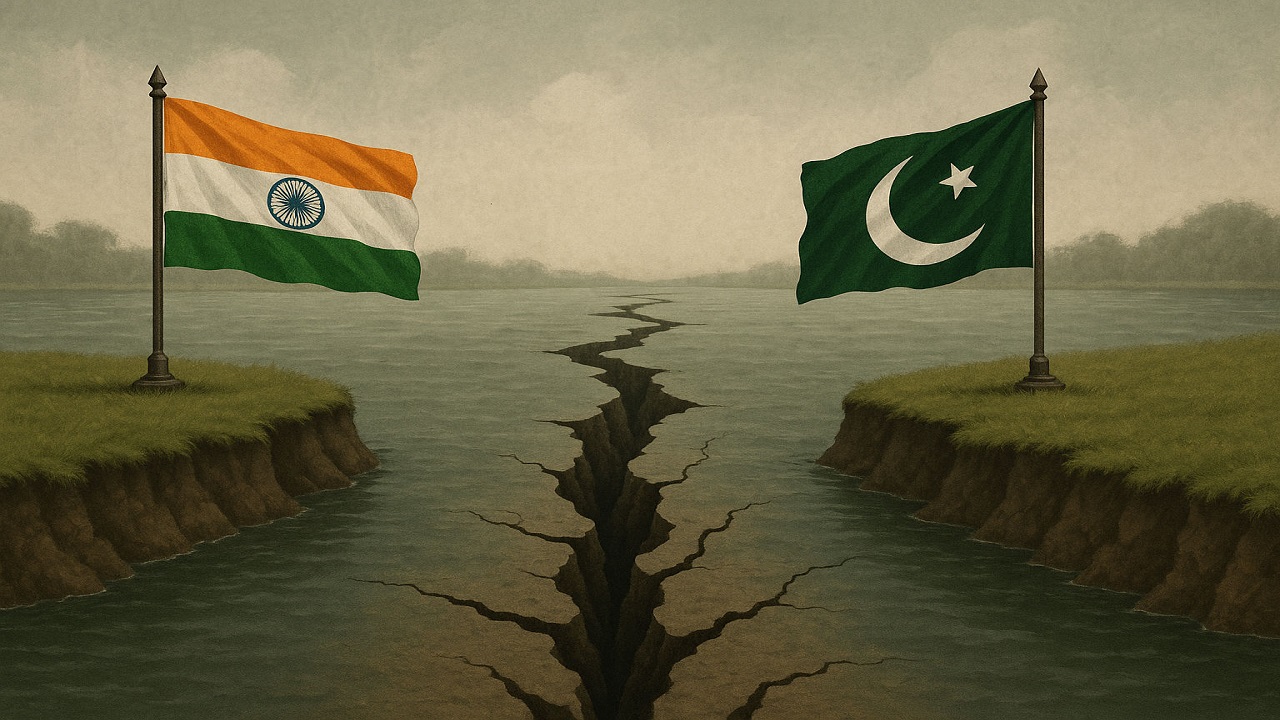Pahalgam 2025: India’s Response to Cross-Border Terrorism
Context:
On April 22, 2025, a terrorist attack in Pahalgam, Jammu and Kashmir, claimed the lives of 26 people, including tourists and civilians. This was one of the deadliest attacks in recent years. Preliminary investigations by Indian security agencies confirmed cross-border links to Pakistan-based terror groups.
In light of this, the Cabinet Committee on Security (CCS)—India’s top decision-making body on national security—announced a set of strong countermeasures, reflecting a shift in India’s strategic, diplomatic, and military posture towards Pakistan.
India’s 5-Point Action Plan Against Pakistan
1. Suspension of the Indus Waters Treaty (IWT)
-
India has suspended the Indus Waters Treaty, originally signed in 1960 under World Bank mediation.
-
This treaty governs the sharing of the Indus River and its tributaries between India and Pakistan.
-
The suspension is a major diplomatic shift, aimed at pressuring Pakistan to “credibly and irrevocably abjure terrorism.”
2. Closure of Attari-Wagah Integrated Check Post
-
India has shut down the Attari Integrated Check Post, ceasing all cross-border movement of people and goods.
-
Pakistani nationals already in India with valid documents may return by 01 May 2025.
3. Cancellation of the SAARC Visa Exemption Scheme (SVES)
-
The SVES, which allowed visa-free travel for certain categories of Pakistani nationals, has been revoked.
-
All existing SVES visas for Pakistani nationals have been cancelled.
-
Pakistani citizens under this scheme have been asked to exit India within 48 hours.
4. Expulsion of Pakistani Military Advisors
-
All Pakistani military, naval, and air advisors stationed in the High Commission in New Delhi have been declared Persona Non Grata.
-
India will also withdraw its military attaches from the Indian High Commission in Islamabad.
5. Reduction in Diplomatic Engagement
-
India will reduce its diplomatic staff in Islamabad from 55 to 30 by 01 May 2025, indicating a deliberate scaling down of bilateral diplomatic engagement.
Geopolitical Context: Pakistan’s Increasing Isolation
A. Decline in Strategic Importance
-
Post the US withdrawal from Afghanistan (2021), Pakistan has lost strategic leverage.
-
Economic aid from the US has significantly declined, weakening its geopolitical standing.
B. Erosion of Gulf Support
-
Gulf nations like Saudi Arabia and UAE have refused further bailouts, citing frustration with Pakistan’s repeated financial mismanagement.
C. Strained China-Pakistan Relations
-
Despite major Chinese investments under CPEC, many projects are stalled due to:
-
Corruption
-
Security concerns, including attacks on Chinese workers
-
-
As a result, Beijing’s trust in Pakistan has eroded.
D. Hostile Relations with Afghanistan
-
The Taliban-led Afghanistan, once considered a strategic ally, has turned hostile.
-
Pakistan is witnessing increased cross-border attacks and instability along the Afghan-Pakistan border.
E. Rising Tensions with Iran
-
Recent incidents, such as the killing of Pakistani workers by Baloch militants in Iran, have triggered retaliatory cross-border strikes by both nations.
Islamabad’s Perspective: Perception of Indian Assertiveness
-
Pakistan perceives India’s moves as part of a larger strategy to marginalise and isolate Islamabad.
-
Developments feeding this perception:
-
Abrogation of Article 370 (2019) and growing normalcy in Kashmir.
-
Record-breaking tourism and economic stability in the Valley.
-
US de-hyphenation policy, treating India and Pakistan separately.
-
PM Modi’s visit to Saudi Arabia and US Vice President J.D. Vance’s India visit, with no stop in Pakistan.
-
The Pahalgam Attack: Pakistan’s Desperate Geopolitical Signal
-
The attack is viewed by analysts as a calculated provocation, aimed at regaining international relevance.
-
Statements from Pakistan Army Chief Gen. Asim Munir invoked:
-
The Two-Nation Theory
-
Kashmir as the “jugular vein” of Pakistan
-
-
The timing of the attack, amid global diplomatic activity, may reflect Pakistan’s intent to assert itself as a regional stakeholder, even via negative attention.
India’s Strategic Path Forward
A. Internal Security Response
-
Conduct a security audit to identify lapses and improve operational efficiency.
-
Prevent politicisation of the incident; encourage collaboration with J&K state leadership, such as the National Conference.
-
Ensure continuity of tourism and developmental projects in Kashmir.
B. Diplomatic Strategy
-
Maintain international focus on Pakistan’s support for terror networks.
-
Prevent the normalisation of terrorism as a diplomatic tool.
-
Strengthen India’s image as a stable and responsible regional power.
Conclusion: Sustaining Stability and Development in Kashmir
India must ensure that the Pahalgam terror attack does not derail the ongoing efforts toward peace and prosperity in Jammu & Kashmir. The long-term goal should focus on:
-
People-centric development
-
Infrastructure and tourism promotion
-
Counter-terror preparedness
India’s response must reflect a balance of assertiveness and strategic restraint, keeping in mind regional stability and its global image.




Comments (0)